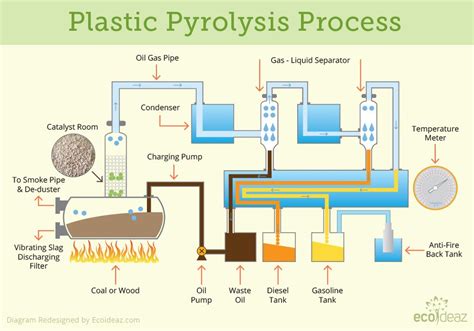Plastic recycling has long been heralded as a solution to our growing waste problem. However, the recent surge in support for advanced recycling methods, specifically pyrolysis, raises a crucial question: are we being led down another deceptive path? It’s not the first time we’ve been promised a recycling revolution, only to be left disillusioned. Thirty years ago, we were told that recycling could mend the environmental damage caused by our plastic addiction. Today, skepticism looms large as the promised breakthroughs remain elusive.
Pyrolysis, which involves heating plastic waste in an oxygen-free environment to produce oil and other substances, is lauded by some as the future of plastic recycling. But as noted by one critic, ‘Recycling technology has not advanced enough that what is promised is credible.’ Skeptics argue that the energy required for pyrolysis often surpasses the energy it produces, making the process economically and environmentally unsustainable. If major players like Exxon-Mobil are pushing this technology, one must question their motives and the genuine viability of pyrolysis as a large-scale solution.
From an economic standpoint, the process is questioned for its efficiency. According to data, pyrolysis requires more energy than it generates. This paradox undermines the fundamental goal of waste-to-energy methods. Moreover, communities situated near pyrolysis plants bear the brunt of its environmental impact, from hazardous emissions to potential health risks. Why then, is there such a push from organizations like the American Chemistry Council (ACC)? The argument goes deeper into the realm of corporate self-interest. If plastics were evaluated based on post-consumption treatment, their flaws as consumer products would become glaringly evident, impacting the bottom lines of these corporations.
Alternatives to plastic, such as aluminum or wood, may offer more sustainable solutions for some applications. For example, beverage cans are often more sustainably produced using aluminum. Similarly, wooden utensils and paper bags offer viable alternatives to their plastic counterparts. These alternatives are already being adopted in some niches but face resistance when pitted against the convenience and cost-efficiency provided by plastic products. The difficulty lies in the ingrained habits of industries and consumers alike.
Plastic’s journey through various stages of its life cycle reveals a web of complexities. While it is true that pyrolysis can convert plastic waste into other forms of fuel, the net environmental and economic benefits remain questionable. The conversation about plastic recycling reaches beyond the methods themselves; it touches on broader societal behaviors and the structural challenges within the recycling industry. Traditional mechanical recycling, while not perfect, remains relatively effective for some types of plastic. However, a substantial portion of plastic waste is not easily recyclable, leading to a significant accumulation in landfills.
Advancements in technology and policy change are vital for improving recycling processes. Yet, the ultimate aim should be reducing plastic use at the source. Shifting consumer behavior by emphasizing reusable and sustainable materials can create a significant impact. Policies that incentivize using less plastic and adopting biodegradable alternatives must be prioritized. Simple changes, such as using glass for milk, paper for tea bags, and bulk foods without excessive packaging, can significantly reduce plastic waste.
Consumer awareness and choice also play a pivotal role. Bringing a reusable container for takeout, avoiding single-use plastics, and supporting businesses that use sustainable packaging are small but impactful steps. In addition, pushing for systemic changes, such as the development of efficient public transport and urban planning, can curb the reliance on plastic-intensive goods. Efforts like those seen in Vienna, where incineration with minimal emissions is practiced, showcase the potential of innovative approaches to managing plastic waste responsibly.
Ultimately, the essence of waste reduction lies in embracing a minimalist mindset and fostering a circular economy where materials are reused to their full potential before being responsibly disposed of. The discourse around plastic recycling needs to evolve from a focus on technological fixes to a holistic approach addressing the root causes of plastic consumption. As we navigate these challenges, one thing remains clear: the reliability of recycling systems hinges not just on technology but on collective will and informed choices made by industries, policymakers, and consumers alike.


Leave a Reply